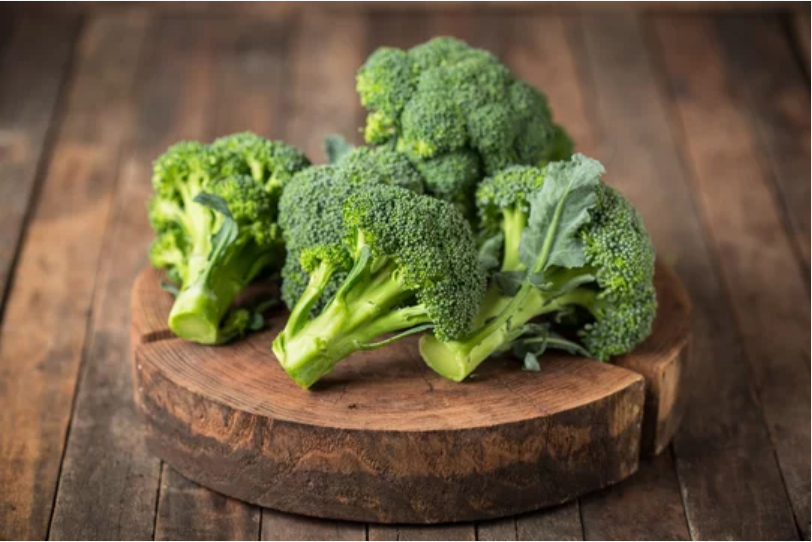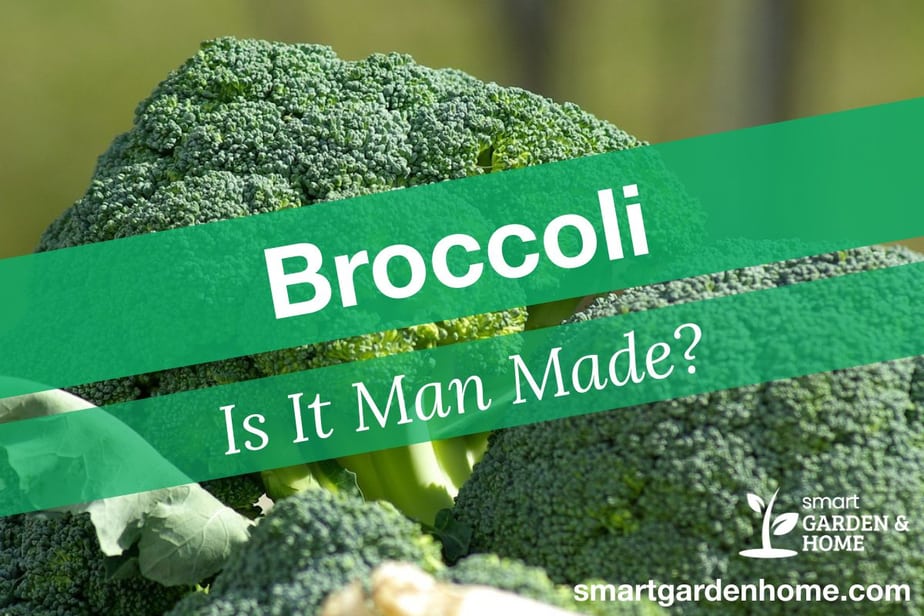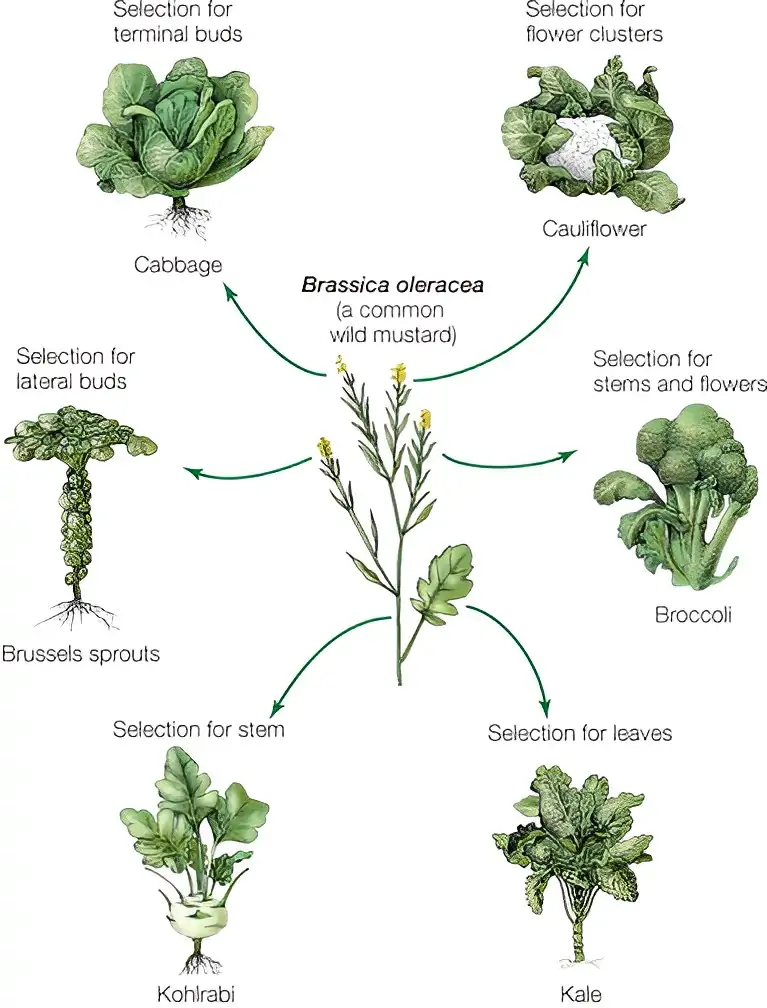Ever wondered if broccoli is man made? Well, buckle up because we're diving deep into the origins of this green powerhouse and uncovering some seriously fascinating facts along the way. This isn't just a vegetable; it's a story of evolution, science, and human ingenuity. So, let's get started!
Broccoli has been a staple in kitchens worldwide for centuries, but have you ever stopped to think about where it actually comes from? Is it a natural plant that’s been around since the dawn of time, or is it a product of human intervention? Spoiler alert: it's a bit of both, and that's what makes this tale so darn interesting.
Now, before we dive headfirst into the nitty-gritty details, let me just say this—broccoli isn’t your average veggie. It’s packed with nutrients, antioxidants, and a whole lot of goodness that keeps your body running like a well-oiled machine. But how did it come to be? Was it always this way? Or did we humans have a hand in shaping it into the superfood we know today? Let’s find out.
Read also:Girls Gone Wild A Deep Dive Into The Phenomenon That Shook The Party Scene
What Exactly Is Broccoli?
Before we tackle the big question of whether broccoli is man-made, let’s take a moment to understand what broccoli actually is. Broccoli, scientifically known as Brassica oleracea var. italica, is a member of the cabbage family. It’s closely related to cauliflower, kale, and Brussels sprouts, which means it’s got some pretty impressive genetic connections.
Broccoli is famous for its distinctive green florets, crunchy stems, and earthy flavor. But here’s the kicker—it’s not just any vegetable. Broccoli is a nutritional powerhouse, loaded with vitamins C and K, fiber, and a whole host of other goodies that make it a favorite among health enthusiasts.
Is Broccoli Man Made? The Origins of This Veggie
Alright, here’s the million-dollar question: is broccoli man-made? The short answer is yes, but let me explain. Broccoli, as we know it today, is the result of selective breeding by humans over thousands of years. It all started with a wild plant called Brassica oleracea, also known as wild cabbage.
This wild cabbage was native to the Mediterranean region and was a far cry from the broccoli we see in grocery stores today. Through careful selection and breeding, ancient farmers were able to develop different varieties of the plant, including broccoli, cauliflower, and kale. So, while broccoli isn’t entirely "man-made" in the sense of being genetically engineered, it certainly owes its existence to human intervention.
How Was Broccoli Created?
Now that we’ve established that broccoli is indeed a product of human ingenuity, let’s talk about how it came to be. The process of creating broccoli involved selective breeding, a technique that’s been used by farmers for thousands of years.
Selective breeding works by choosing plants with desirable traits and breeding them together to produce offspring with those same traits. In the case of broccoli, farmers selected plants with large, leafy heads and bred them to create the broccoli we know today.
Read also:Sophie Dee The Rising Star Redefining Entertainment
This process took generations, with each generation of broccoli becoming more refined and better suited to human consumption. It’s a testament to the ingenuity of our ancestors and their ability to shape the world around them.
Key Factors in Broccoli Development
So, what exactly were the key factors that led to the development of broccoli? Here are a few:
- Large Heads: Farmers selected plants with larger heads, which eventually led to the formation of the broccoli florets we love today.
- Edible Stems: The stems of the plant were also selectively bred to become more tender and delicious.
- Nutrient Density: Over time, farmers bred plants that were not only more palatable but also more nutritious.
The Science Behind Broccoli
Now that we’ve covered the history of broccoli, let’s dive into the science behind it. Broccoli is a fascinating plant, and its genetic makeup is just as interesting as its history.
Broccoli’s genome has been extensively studied, and researchers have discovered that it contains a wealth of genetic diversity. This diversity is what allows broccoli to adapt to different environments and resist pests and diseases.
But here’s the really cool part—broccoli is also packed with compounds that are beneficial to human health. These compounds, known as glucosinolates, are what give broccoli its distinctive flavor and its powerful health benefits.
Health Benefits of Broccoli
Speaking of health benefits, let’s talk about why broccoli is such a superstar in the world of nutrition. Here are just a few reasons why you should be eating more broccoli:
- Rich in Antioxidants: Broccoli is loaded with antioxidants that help protect your cells from damage.
- Boosts Immune System: The vitamin C in broccoli helps keep your immune system strong and healthy.
- Promotes Digestive Health: The fiber in broccoli keeps your digestive system running smoothly.
Is Broccoli Genetically Modified?
Now, you might be wondering if broccoli is genetically modified. The answer is no—at least not in the way that modern genetically modified organisms (GMOs) are created. Broccoli was developed through traditional breeding methods, which means that its genetic makeup hasn’t been altered using modern biotechnology.
That said, there are some varieties of broccoli that have been genetically modified to enhance certain traits, such as pest resistance or nutritional content. However, these varieties are not widely available in most grocery stores, so the broccoli you’re eating is likely the result of good old-fashioned selective breeding.
Traditional vs. Modern Breeding
It’s worth noting that there’s a big difference between traditional breeding methods and modern genetic modification. Traditional breeding involves selecting plants with desirable traits and breeding them together over generations, while genetic modification involves directly altering the DNA of a plant in a lab.
Both methods have their pros and cons, but traditional breeding has been used for thousands of years and is responsible for the creation of many of the foods we eat today, including broccoli.
Broccoli in Modern Times
Fast forward to today, and broccoli is more popular than ever. It’s a staple in kitchens around the world and is beloved for its versatility and nutritional value. But how did broccoli become such a household name?
Part of the reason is its versatility. Broccoli can be steamed, roasted, stir-fried, or even eaten raw. It’s a blank canvas that can be dressed up with a variety of flavors and spices, making it a favorite among chefs and home cooks alike.
Another reason for its popularity is its nutritional value. As we’ve already discussed, broccoli is packed with vitamins, minerals, and antioxidants that make it a powerhouse of health.
Broccoli Trends
Broccoli has also been the subject of some pretty interesting trends in recent years. From broccoli pizza crusts to broccoli smoothies, this versatile veggie is finding its way into all sorts of unexpected places.
And let’s not forget about the rise of "superfoods." Broccoli has been touted as one of the ultimate superfoods, thanks to its impressive nutritional profile and health benefits. This has only served to increase its popularity among health-conscious consumers.
Broccoli and the Environment
Finally, let’s talk about broccoli and the environment. As we all know, the food we eat has a big impact on the planet, and broccoli is no exception. But here’s the good news—broccoli is relatively sustainable compared to other crops.
Broccoli requires less water and fewer pesticides than many other vegetables, making it a more environmentally friendly choice. Additionally, broccoli is often grown using sustainable farming practices, which help preserve soil health and reduce the impact on local ecosystems.
Of course, there’s always room for improvement, and researchers are constantly working to develop new varieties of broccoli that are even more sustainable and resilient to changing climate conditions.
Future of Broccoli
Looking to the future, broccoli is poised to become even more important in our diets. With the global population expected to reach 10 billion by 2050, sustainable and nutritious crops like broccoli will play a crucial role in feeding the world.
Scientists are already working on developing new varieties of broccoli that are more resistant to pests, diseases, and climate change. These varieties will not only be more sustainable but also more nutritious, ensuring that broccoli remains a staple in kitchens around the world for generations to come.
Conclusion
So, is broccoli man-made? The answer is a resounding yes, but it’s also so much more than that. Broccoli is a testament to the ingenuity of our ancestors and their ability to shape the world around them. It’s a nutritional powerhouse, a versatile ingredient, and a sustainable crop that’s poised to play a big role in the future of food.
Now that you know the truth about broccoli, why not give it a try? Whether you’re steaming it, roasting it, or blending it into a smoothie, broccoli is a delicious and nutritious addition to any meal. So go ahead and give it a chance—you won’t regret it!
And if you’ve enjoyed this article, don’t forget to share it with your friends and family. Who knows? You might just inspire someone to give broccoli a second look. And hey, if you’ve got any questions or comments, drop them in the section below. We’d love to hear from you!
Table of Contents
Is Broccoli Man Made? The Origins of This Veggie
Is Broccoli Genetically Modified?


